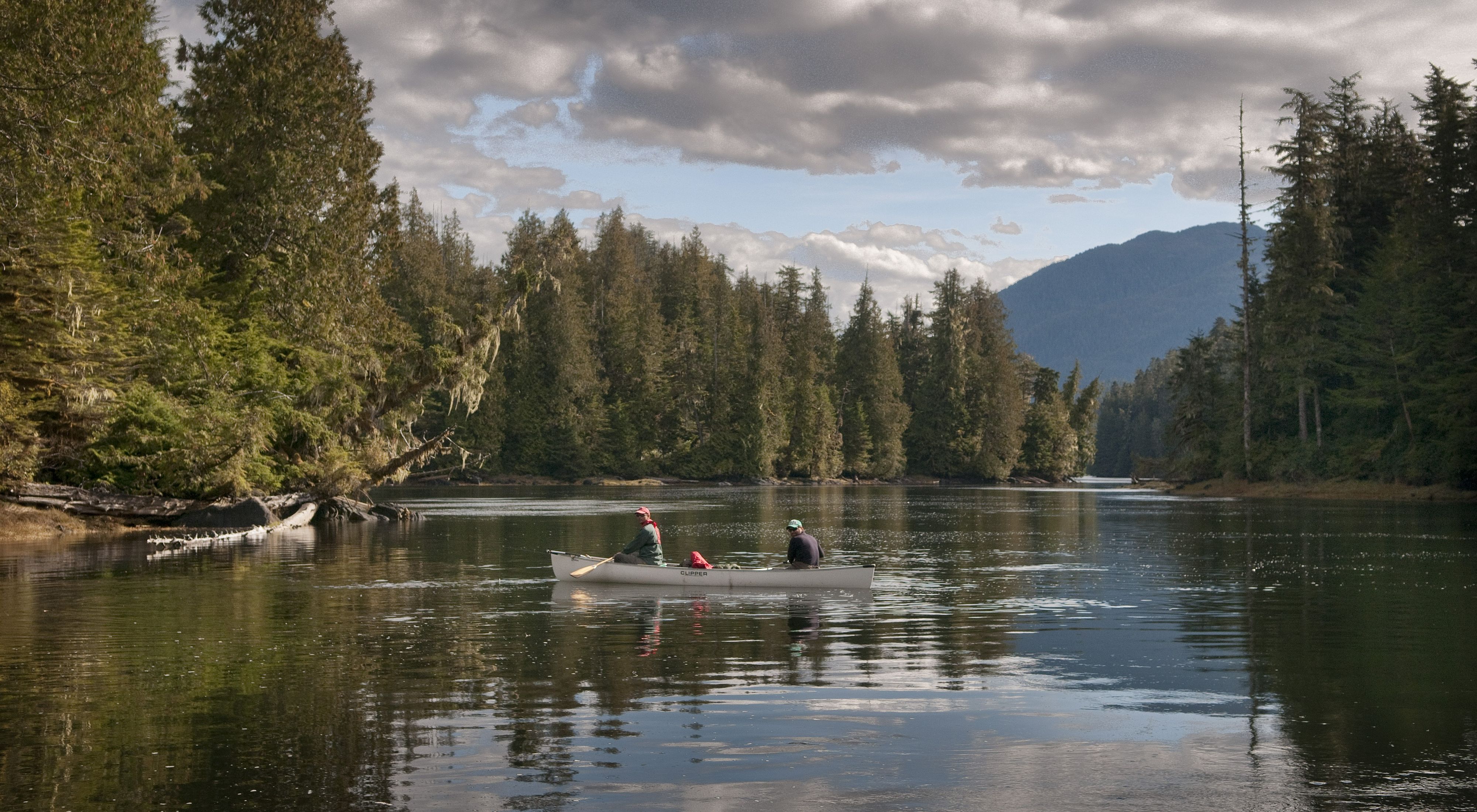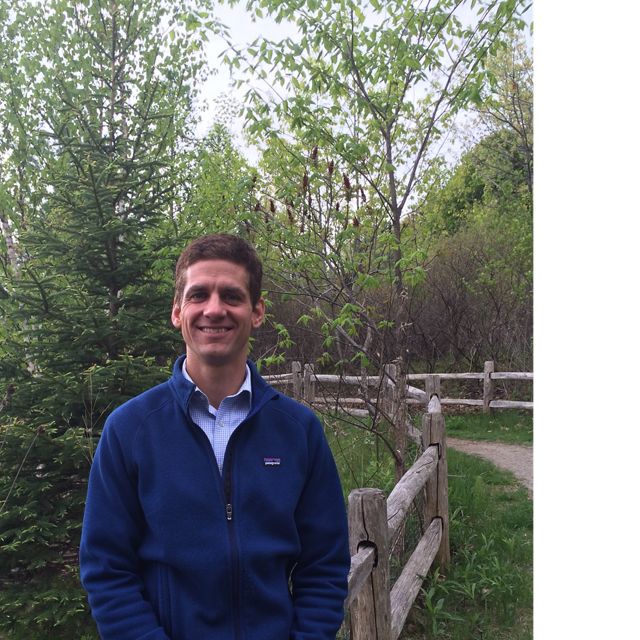Our Journey Toward Accountability, Action and Transparency
"Advancing Indigenous right relations is a priority — one that will take hard work, deep reflection and action.”
I began my journey in conservation in Canada twenty years ago. As the impact of our species on nature was becoming clear, the emphasis was on protecting wilderness and nature from people. The predominant view was that we had to protect what remained intact as time ran out. The problem was that, despite being the original stewards of these lands and waters, Indigenous voices were excluded and, in many cases, marginalized.
When I joined Nature United in 2014, our organization was partnering with Indigenous Nations and communities to advance conservation in the Great Bear Rainforest. I had a lot to learn — and unlearn — about how to support these partnerships and move forward in a way that respects and honours the Indigenous Peoples who are deeply connected to this place. I remember one warm July night, nearly 10 years ago, when our team was sitting around a roaring campfire in Great Bear. We were guests in Haíɫzaqv (Heiltsuk) territory, joined by a dozen youths and listening to community leaders tell their Nation's traditional stories. After the children trudged to bed, we had an open and frank discussion about the role of non-Indigenous conservation organizations in the agreement. At one point — and I will never forget this — one leader said, "I'm telling you these things because I care. We value this partnership and want to continue working with you."
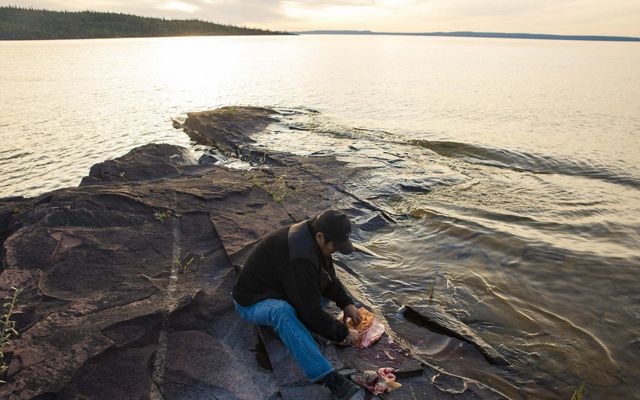
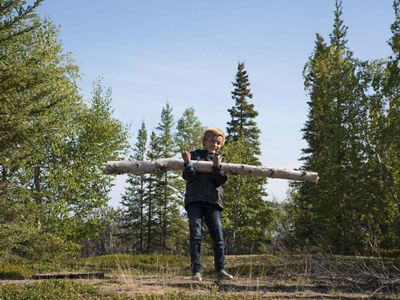
Over the years, I have reflected on those words and felt deeply grateful for the generosity of the many Indigenous partners who have shared their knowledge with our team and worked with us to unearth shared values. As the Executive Director at a non-Indigenous conservation organization, I know Nature United has a critical role in reconciling relationships between Indigenous and non-Indigenous Peoples in Canada. We must seek to understand past wrongs and co-create new pathways to conservation and social justice. Nature United has been committed to this journey since the beginning of our work in Canada, but we know there is more we can and must be doing. And we accept our responsibility to share what we’ve learned and support the learning of others.
Quote
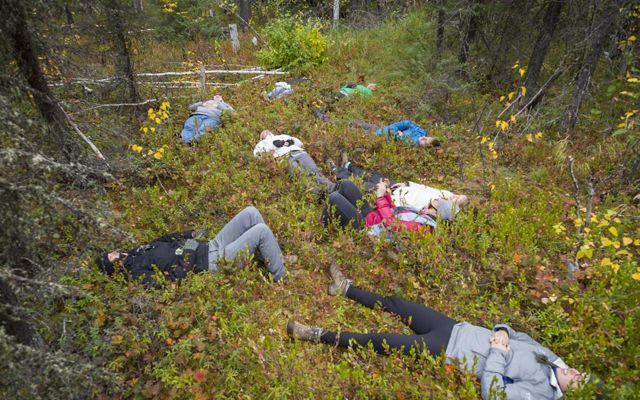
We must take a step back, reflect and listen. We'll be on this journey for a long time, and it was time to hold ourselves accountable.
Taking Accountability
Since those early days in the Great Bear Rainforest, our team has worked to align our strategies, approaches and operational practices with our commitment to working in right relations with Indigenous Peoples. But that doesn’t mean that we’re doing everything right, or that we’ve reached the end of our journey. As a non-Indigenous organization in the conservation sector, Nature United works within a colonial structure. We must take a step back, reflect and listen. We'll be on this journey for a long time, and it was time to hold ourselves accountable.
To critically evaluate our progress, we worked with an Indigenous-led consultancy, Reciprocal Consulting, in 2021 to assess our organizational progress in advancing right relations and how our actions were continuing to perpetuate colonialism. Our team and our Board of Directors worked together to process the findings over the past two years, focusing on priorities and raising honest questions about how to expand this work — ultimately informing our Indigenous Right Relations Strategy and Action Plan. This has been hard work, requiring deep reflection across our team.
Being Transparent
Our work in partnership with Indigenous Peoples is guided by respect and trust, community leadership, and reciprocity. Our commitment to working in right relations with Indigenous Peoples means that we will continue to listen, learn, and evolve at every level of our organization to meaningfully advance this priority over the long term. And to be transparent about what we're learning — not just where we're doing things well, but also where we need to improve. We are responsible for talking about our learnings and supporting others in their journey.
Action matters
This journey requires a strong and active commitment to learning, reflecting and sharing new insights. We are committed to regularly reporting on our progress, and to embracing courageous conversations. Our key commitments are:
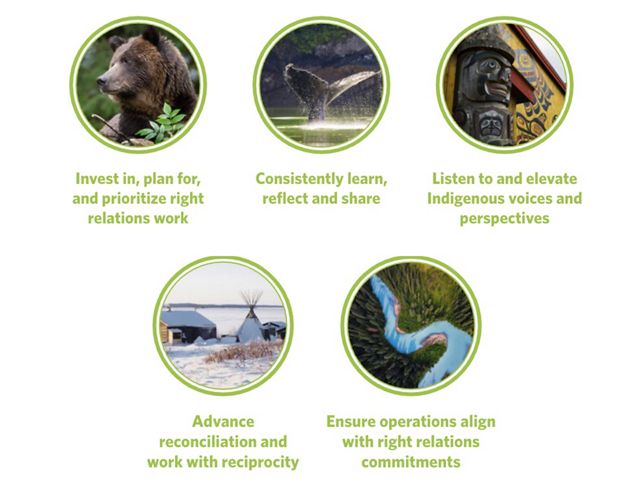
What we learned around a campfire nearly 10 years ago still reverberates through our work to advance right relations with Indigenous Peoples. As we continue on our journey, we must continue to listen — as our work evolves, as we build new partnerships, as we fundraise and bring new resources to our shared work.
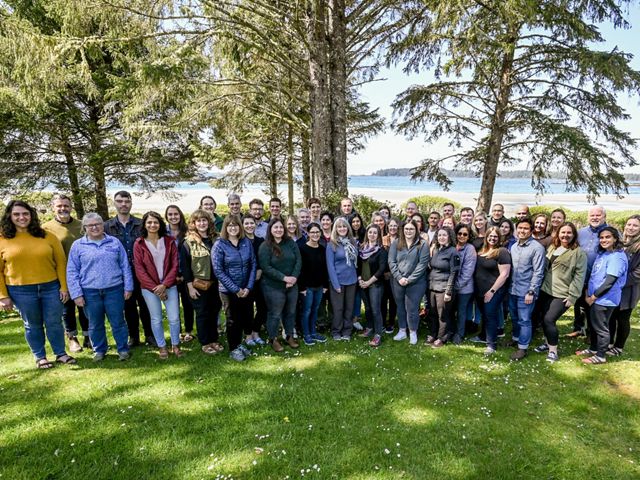
Our organization is committed to taking the lessons generously shared with us to make meaningful changes at every level of our organization. It is our role and our responsibility. And it is our responsibility to support others to reimagine conservation so it advances the rights, authority and leadership of Indigenous Peoples.
Working With Indigenous Peoples
We believe that the increased authority and capacity of Indigenous peoples to steward their lands and waters is critical for the future of healthy ecosystems and communities, and it results in effective and durable sustainable management over time.

